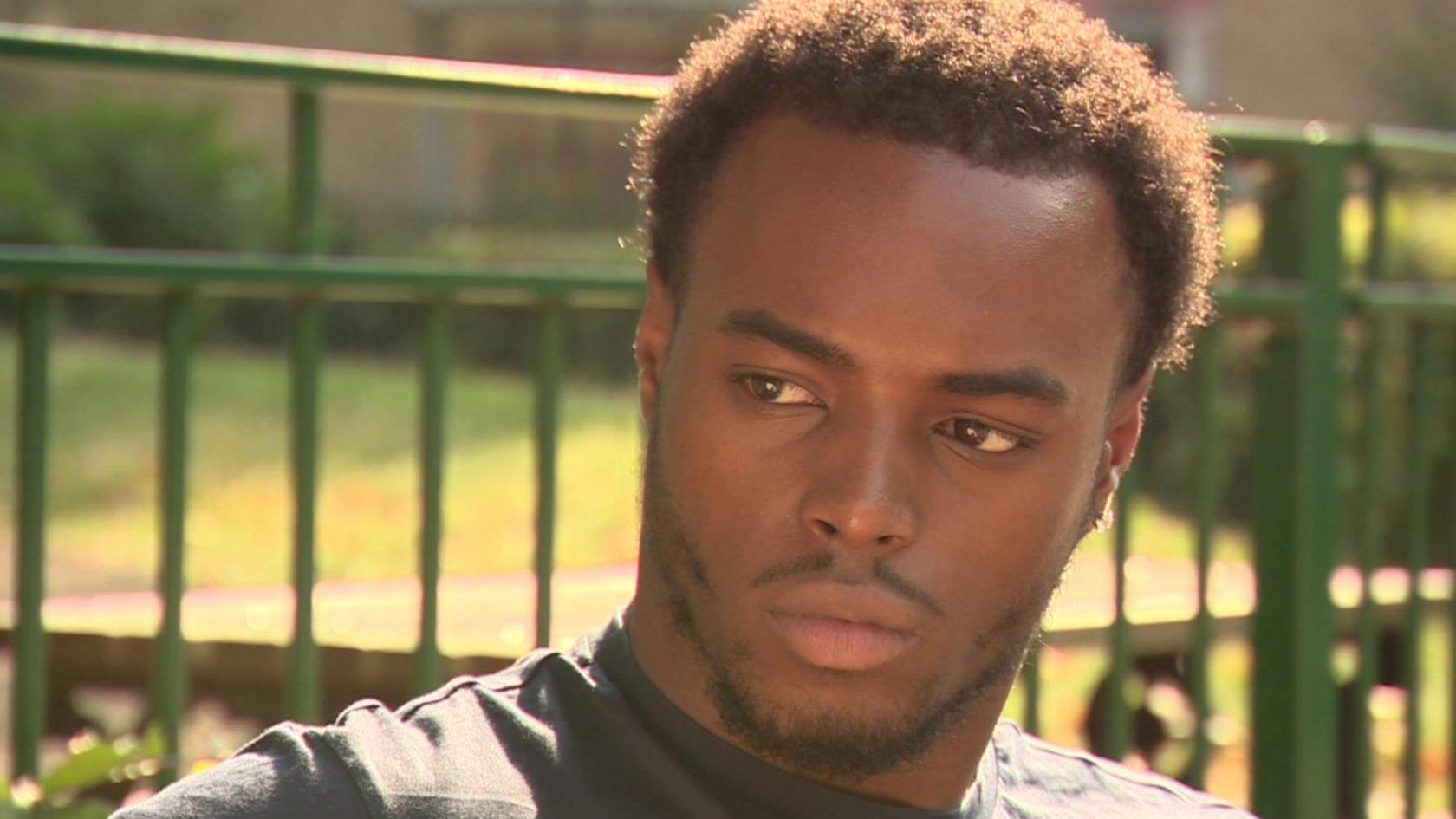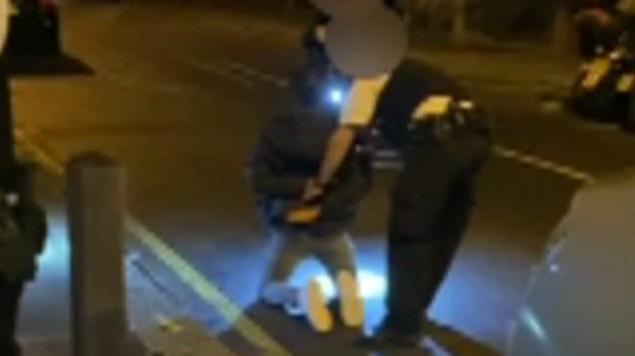Man 'feared for his life' as Taser held to his neck

Jamar Powell says he struggles to have "faith in the police" following the incident
- Published
A young man has told the BBC he feared for his life when a Met Police officer held a Taser to his neck during a stop and search operation.
PC Connor Jones and another officer drew Tasers on Jamar Powell after stopping him as they investigated reports of a potential crime in Greenwich, south-east London, on 4 September 2020.
Mr Powell, who was 16 at the time, said PC Jones's conduct was "absurd, uncalled for, unnecessary, forceful and definitely an abuse of the badge".
The Independent Office for Police Conduct (IOPC) has ruled the officer committed gross misconduct but did not find his actions were racially motivated.
The Met Police has apologised and paid substantial damages to Mr Powell.
The misconduct panel heard PC Jones and his colleague were responding to a report of a boy carrying a samurai sword and chasing two other boys when they stopped five teenagers.
When one of them, Mr Powell, tried to walk away, the officers drew their Tasers and handcuffed him while he was on his knees.
It was then alleged PC Jones held a Taser against Mr Powell's neck, which the officer denied.
The five teenagers were subsequently released when no weapon was found, the panel was told.
'Unnecessary and forceful'
Mr Powell told the BBC it seemed like the incident unfolded "in a split second".
"I feared for my life at the time. I wasn't certain if it was a gun or a Taser that touched my neck," he said.
He said he had since struggled with his mental health due to the fear he felt that evening and a psychiatrist had told him he had suffered post-traumatic stress syndrome.
"I was numb to it at the time but over the years digesting the feelings is uncomfortable for me," he said.
He said he felt a "level of fear" when he saw police cars in everyday life.
"There is a level of paranoia," he said.
"When you go through that, every police car looks the same... It's hard to feel confident and have faith in the police now."
'Frightening experience'
The police watchdog's panel found the officer's action was not necessary, reasonable or proportionate and he breached standards of professional behaviour relating to use of force and authority, respect and courtesy.
However, the officer did not breach the standards of professional behaviour relating to equality and diversity, the panel said.
Mel Palmer, IOPC regional director, said stop and search was a useful policing tool, but warned it must be used "reasonably and proportionately".
"There was no need for the Taser to be placed on Jamar's neck to handcuff him when he was already kneeling in the road, with his hands clearly visible and placed on his head," she said.
"This would no doubt have been a frightening experience for Jamar, with officers armed with firearms and Tasers, and PC Jones's behaviour was oppressive and bullying."

Mr Powell said PC Jones was "forceful" and abused his position
PC Jones was given a final written warning that will be in place for three years, the watchdog said.
An initial Metropolitan Police report, which was launched after Mr Powell's family complained, found neither officer should face any disciplinary proceedings.
But a request to review the investigation was later made to the IOPC, which then launched an 11-month independent investigation into the complaints, leading to this week's gross misconduct hearing.
The Met said it continued to monitor the use of stop and search to make sure it was used "appropriately".
Additional reporting by PA Media.
Listen to the best of BBC Radio London on Sounds and follow BBC London on Facebook, external, X, external and Instagram, external. Send your story ideas to hello.bbclondon@bbc.co.uk, external